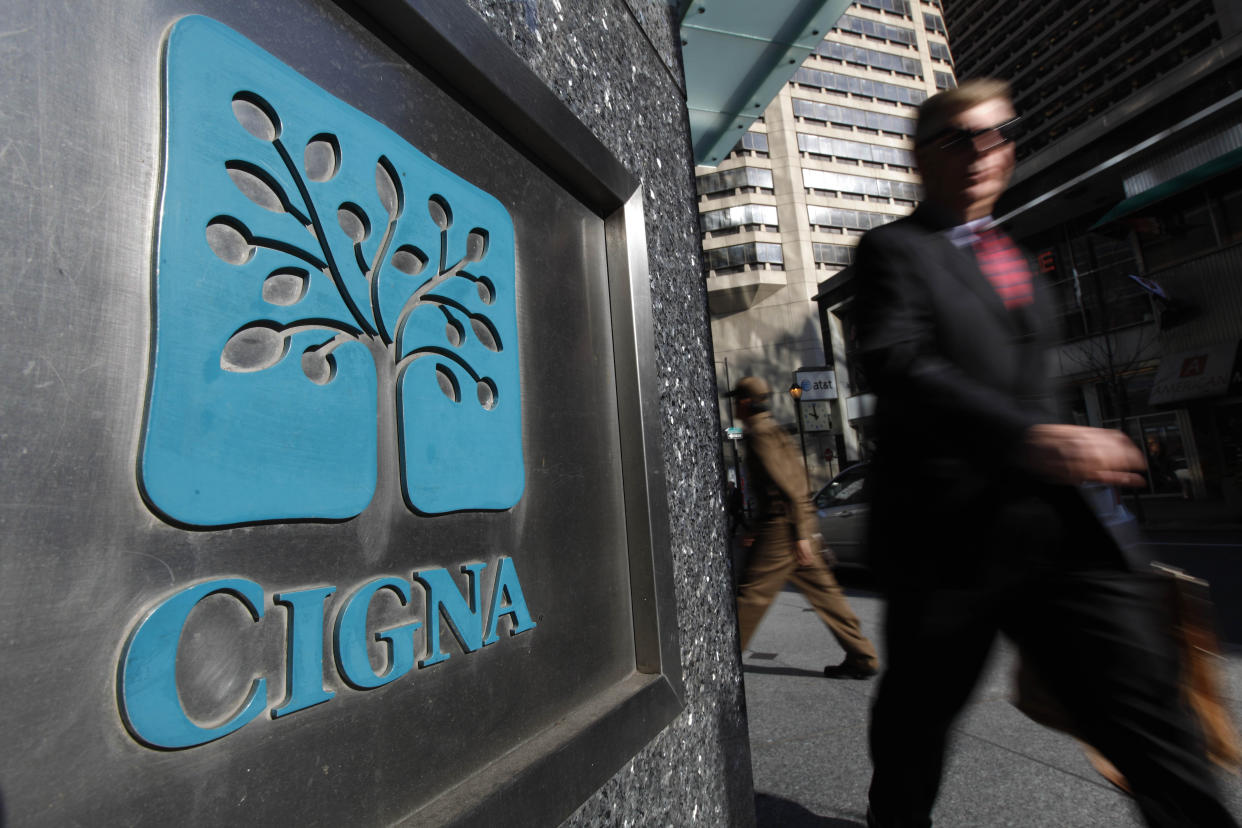Why the Cigna-Humana deal makes sense: Analysts
Nearly a decade after Cigna (CI) and Humana (HUM) first tried to join forces, the two are at it again.
The news of a cash-and-stock deal, which doesn't yet have a value and was first reported by the Wall Street Journal, has not been a surprise to many industry insiders.
"The current management has wanted to own HUM for some time," said Bank of America analyst Kevin Fischbeck in a note Thursday.
Still, it caused shares of both companies, as well as the health insurance industry broadly, to slide late Wednesday and remain flat Thursday.
JPMorgan analyst Lisa Gill said in a note Thursday the reason could be that shareholders who were expecting an easy and profitable year for Cigna, which is expecting a strong year with its pharmacy benefits manager (PBM) Express Scripts, now see 2024 as being mired in a drawn-out regulatory review problem.
"This adds a layer of complexity" for shareholders, she said.
The companies appear to have complimentary needs, with Humana a big player in government contracts such as Medicare, while Cigna is more focused on the commercial market. Still, there is one key overlap: Both have strong PBM businesses. But there have been rumors that Cigna is looking to sell its book of business.
"We believe CI selling its MA [Medicare Advantage] business should eliminate regulatory concerns for the companies, but we note that regulators have looked for increasingly novel arguments to review/challenge large scale M&A, so we think there is a reasonably high likelihood they could still try to challenge the deal. Our base case is a CI-HUM deal will likely take 12-24 months to close, if announced," Gill said in her note.
BofA's Fischbeck said he sees the potential deal as a positive for Cigna, but "the stock could be stuck in 'deal purgatory' as it awaits government approval, which could take 12+ months. We view the MA overlap as solvable, but scrutiny over PBM consolidation could also be a focus."
While the reports did not specify who would run the combined entity, experts are aligned on the idea that with Humana's current CEO Bruce Broussard retiring, it makes sense that Cigna's CEO would take over.

Megadeal, take two
In 2015, Cigna made a bid for Humana, which it ultimately lost to Aetna (CVS). But the potential Aetna-Humana merger failed when federal judges intervened on the basis of antitrust concerns. Cigna was looking to tie up with Anthem — now Elevance (ELV) — at the time as well, and it was similarly blocked for antitrust concerns.
Following the fallout of those deals, many expected Cigna to then tie up with Humana then. But it never materialized.
Since then, Humana has grown into a Medicare Advantage powerhouse, boasting 18% of the enrollment in MA plans in 2023 — second only to UnitedHealthcare's (UNH) 29% — according to KFF.
That, according to Goldman Sachs analysts, is a key reason why the merger would make sense.
"We believe CI's strategic rationale for this deal would be to gain exposure to faster growing government lines of business, particularly MA where HUM has high-teens market share vs. LSD (low single digits) share for CI," the analysts said in a note Thursday.
Sachin Jain, CEO of SCAN Health Group and Plan, said while it might seem counterintuitive to dump the Medicare business, "these are very smart ppl running these companies. (Cigna CEO David) Cordani is a super strategic leader."
Humana has shed its commercial and Affordable Care Act plan businesses in the past five years, and focused more on senior care. That includes a primary and home care service Centerwell, which has aggressively expanded in the past couple of years, and has more plans to grow.
BTIG analysts said in a note that a key "difference between now and 2015 is that Cigna and Humana may argue that Cigna has a high mix of commercial members, while Humana is made up mainly of Medicare and military lives."
In addition, with large players like CVS and UnitedHealthcare operating in multiple sectors of healthcare, the vertical integration model is the new power strategy, and this would give Cigna a platform to compete in the same field.
"The line between payers and providers has become more blurred over the past decade," the analysts said.
Anjalee Khemlani is the senior health reporter at Yahoo Finance, covering all things pharma, insurance, care services, digital health, PBMs, and health policy and politics. Follow Anjalee on all social media platforms @AnjKhem.
